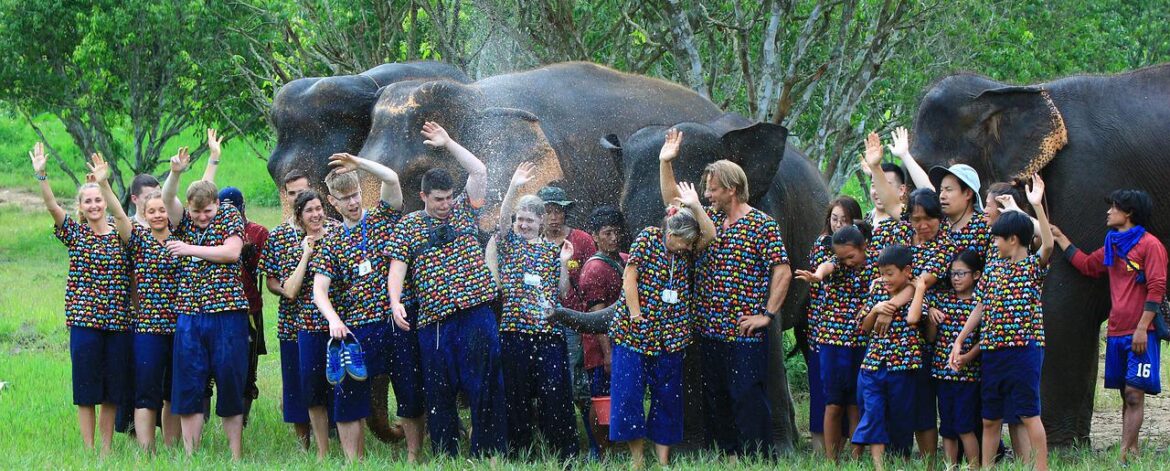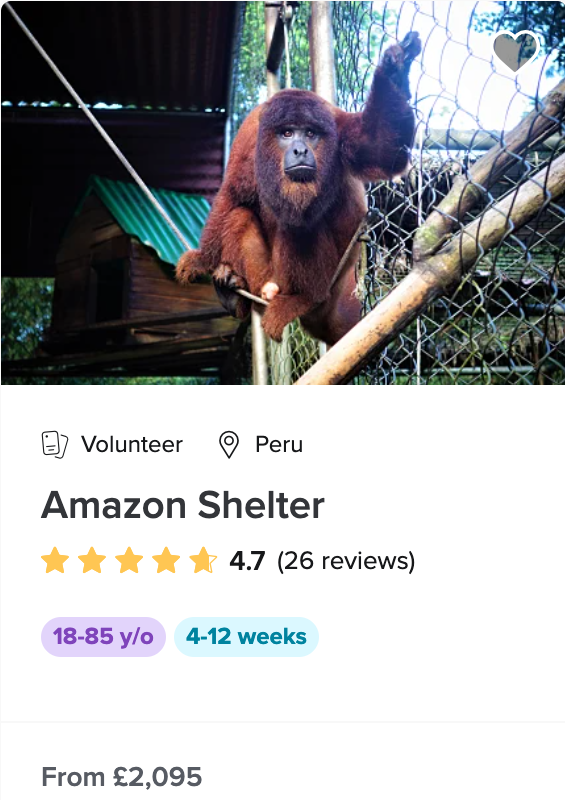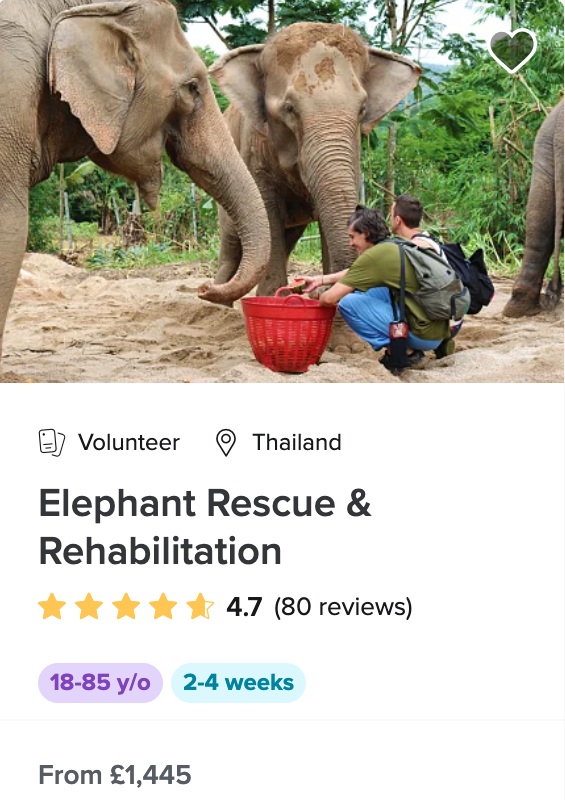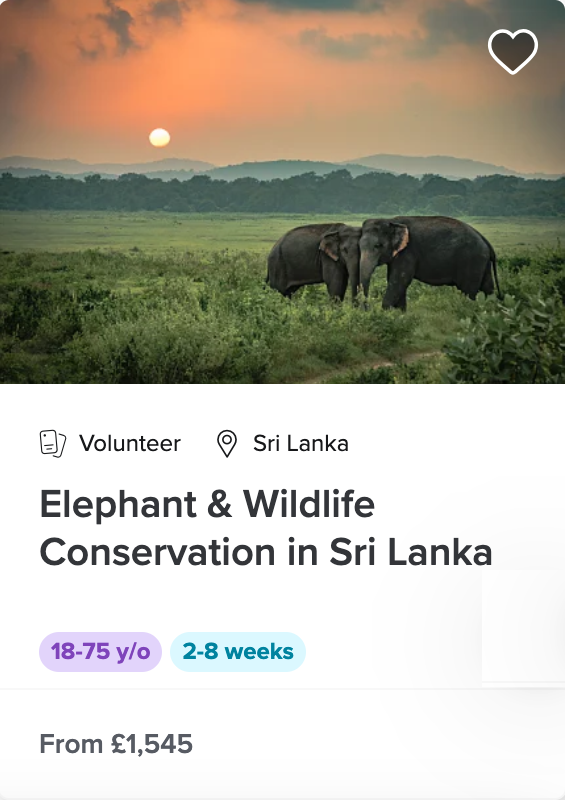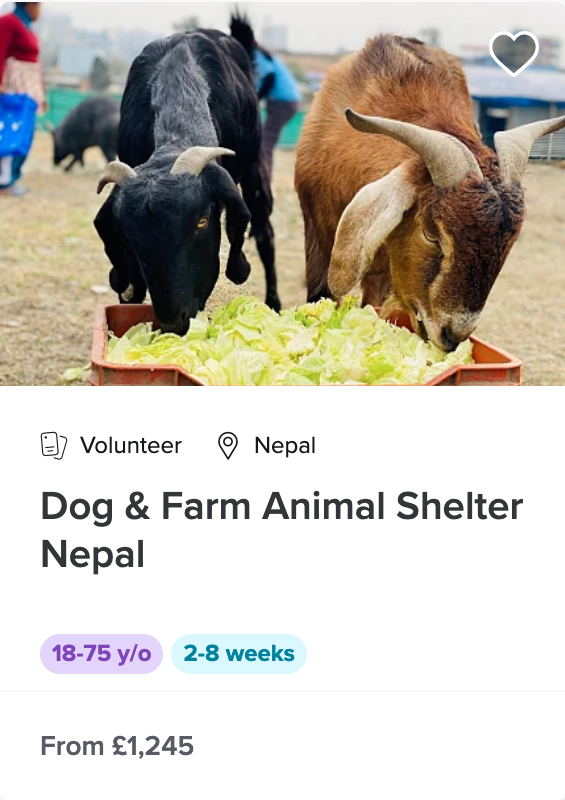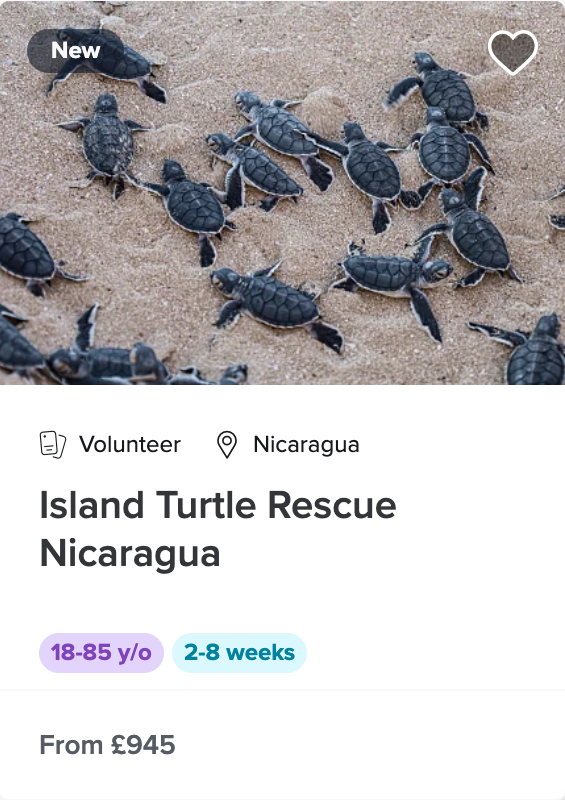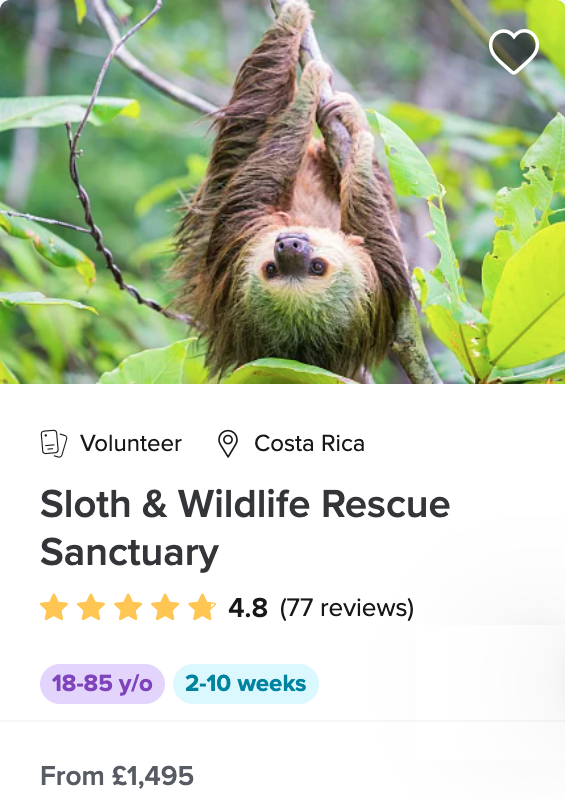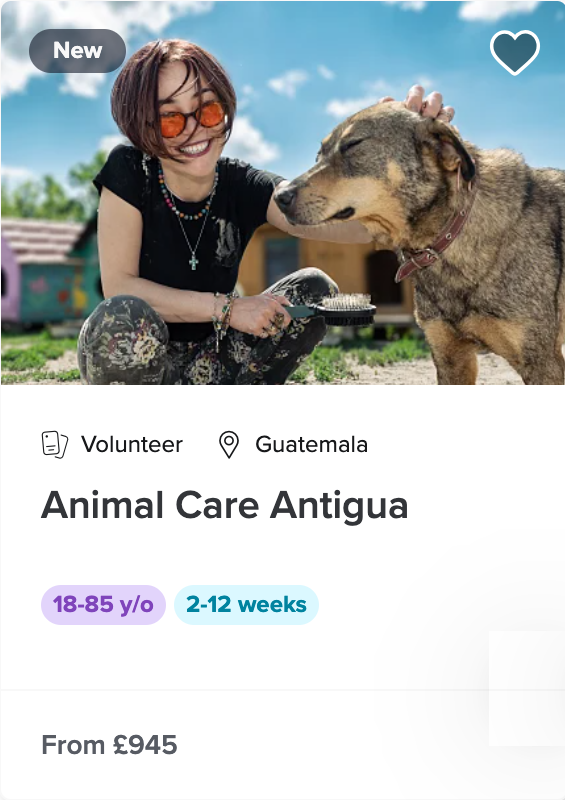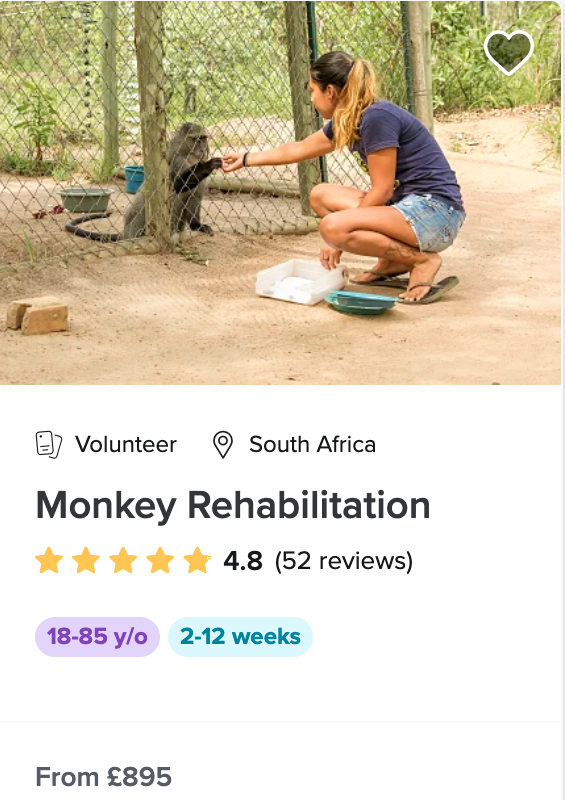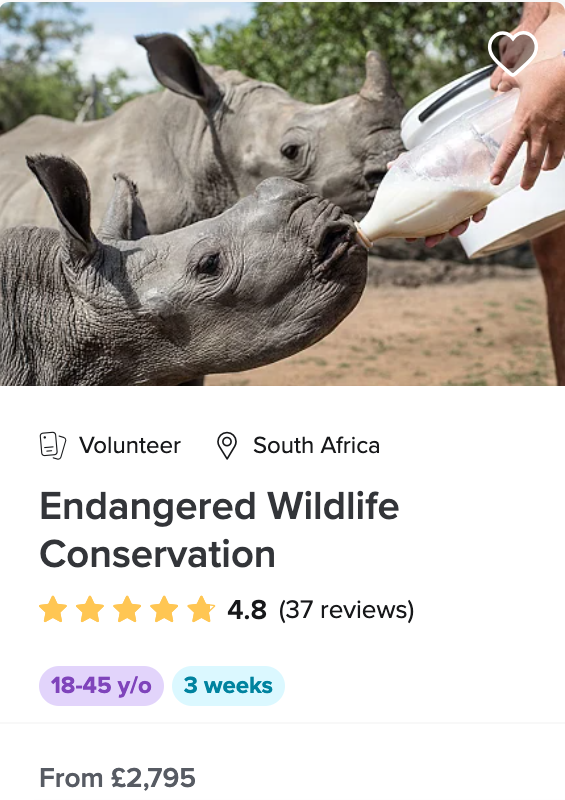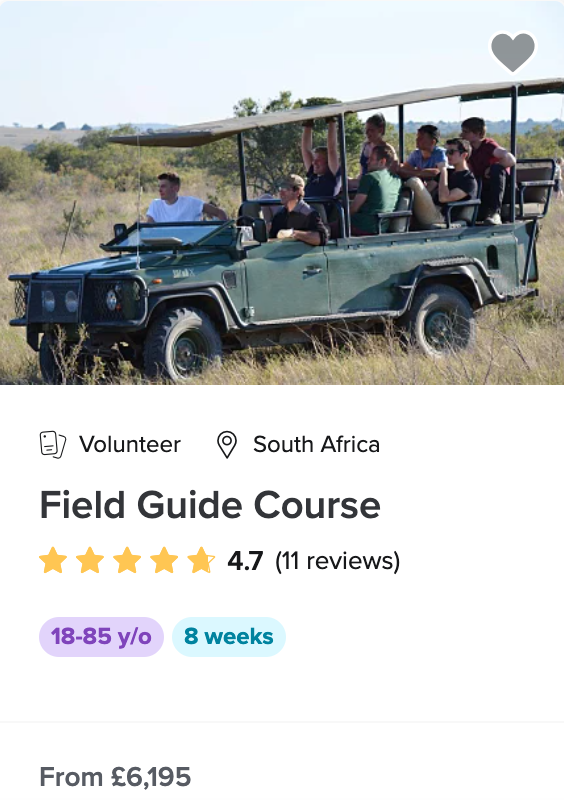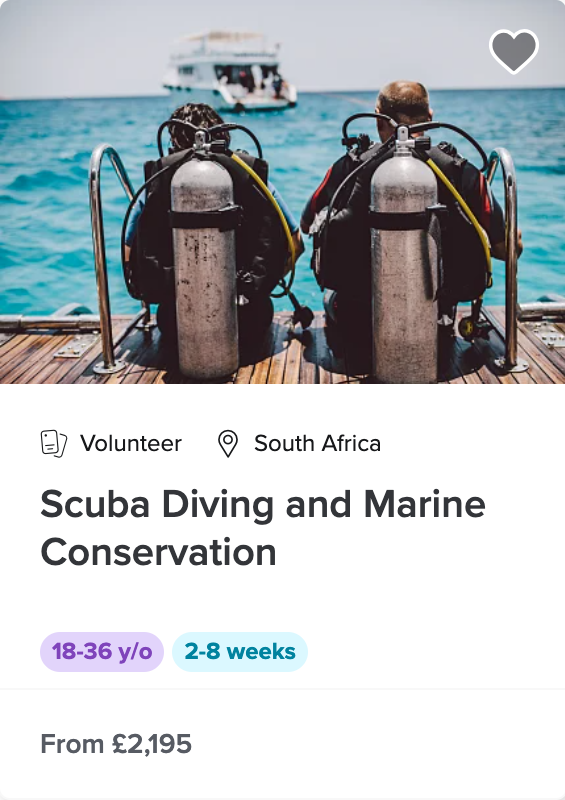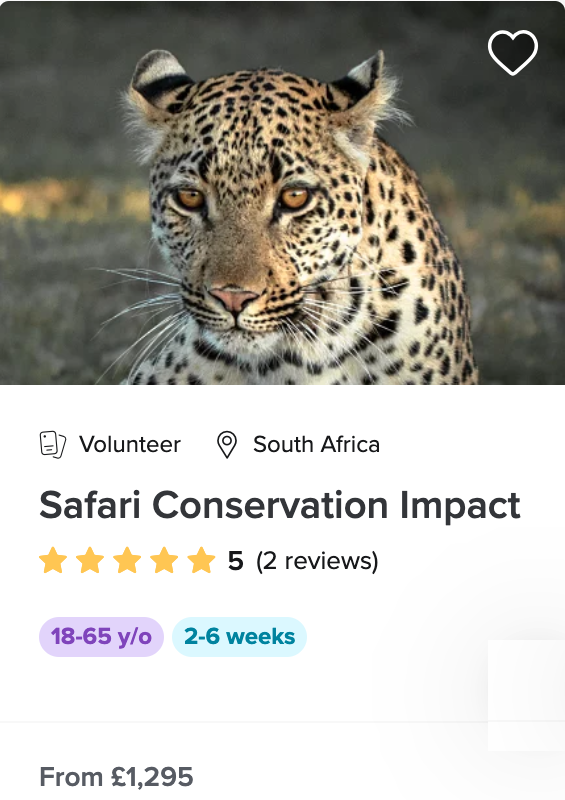Support a wildlife projects around the world. You can volunteer at project ranging in specialisation from general animal care, veterinary work to wildlife rehabilitation, reserve management, field research or marine conservation.
Placements are usually very hands-on and you will be working alongside professionals. Depending on the project you choose, you might be rescuing street dogs, hand-rearing an orphaned rhino, tracking and monitoring elephants, shadowing a wildlife vet, catching and relocating buffalo, antelope and giraffe or compiling a survey of dolphin populations.
Best Animal and Wildlife Conservation Programs
Popular Species to Help
• Bears
• Birds
• Chimpanzees
• Dogs
• Dolphins
• Elephants
• Gorillas
• Koalas
• Lions
• Monkeys
• Orangutans
• Pandas
• Penguins
• Rhinos
• Sharks
• Sloths
• Tigers
• Turtles
• Whales
Where You Can Work
You can find jobs, volunteer placements and internships with animals all around the world. You can seek out animal sanctuaries near to where you live or travel to exotic destinations around the world. Popular places to help include Africa, Asia, Thailand, Costa Rica, the Amazon Rainforest and Peru.
Volunteer at Animal Rescue and Wildlife Sanctuaries
Most animals residing at wildlife sanctuaries are maltreated before they arrive, suffering from abuse, malnutrition, neglect and improper care, rescued from the illegal pet trade, or have previously been exploited for the tourism industry.
Unfortunately many animals arrive with permanent disabilities and hence, cannot be returned to the wild. Most centre’s mission is to give these animals the best quality of life possible in captivity. International volunteers are hired to help in locations all around the world.
FAQ
Start dates and duration
Placements are available all year round and can generally last from 1 week to 12 months and more.
Cost
Most placements are self-funded. Placement costs vary depending on duration and project choice but include accommodation, meals, transfers from airports to the project locations, 24/7 support through our own ground manager and the financial contributions to the projects, which are a vital source of funding for the conservation work.

